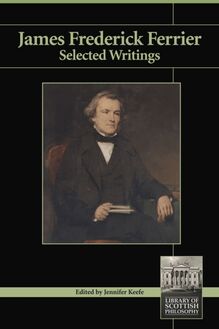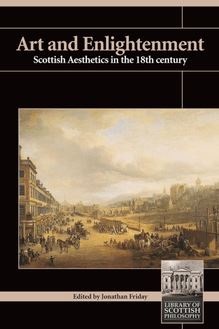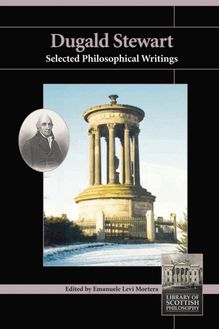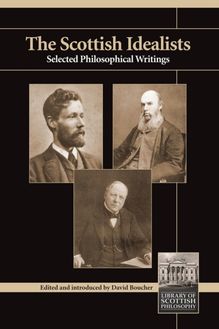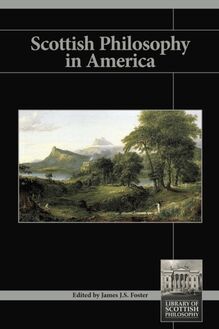-
 Univers
Univers
-
 Ebooks
Ebooks
-
 Livres audio
Livres audio
-
 Presse
Presse
-
 Podcasts
Podcasts
-
 BD
BD
-
 Documents
Documents
-
- Cours
- Révisions
- Ressources pédagogiques
- Sciences de l’éducation
- Manuels scolaires
- Langues
- Travaux de classe
- Annales de BEP
- Etudes supérieures
- Maternelle et primaire
- Fiches de lecture
- Orientation scolaire
- Méthodologie
- Corrigés de devoir
- Annales d’examens et concours
- Annales du bac
- Annales du brevet
- Rapports de stage
La lecture à portée de main
Vous pourrez modifier la taille du texte de cet ouvrage
Découvre YouScribe en t'inscrivant gratuitement
Je m'inscrisDécouvre YouScribe en t'inscrivant gratuitement
Je m'inscrisEn savoir plus
Vous pourrez modifier la taille du texte de cet ouvrage
En savoir plus

Description
Sujets
Informations
| Publié par | Andrews UK |
| Date de parution | 29 octobre 2012 |
| Nombre de lectures | 0 |
| EAN13 | 9781845404086 |
| Langue | English |
Informations légales : prix de location à la page 0,0000€. Cette information est donnée uniquement à titre indicatif conformément à la législation en vigueur.
Extrait
Title page
Politics and Society in Scottish Thought
Edited and Introduced
by Shinichi Nagao
Copyright page
Copyright © Shinichi Nagao, 2007
The moral rights of the author have been asserted.
No part of any contribution may be reproduced in any form without permission, except for the quotation of brief passages in criticism and discussion.
Originally published in the UK by Imprint Academic
PO Box 200, Exeter EX5 5HY, UK
Originally published in the USA by Imprint Academic
Philosophy Documentation Center
PO Box 7147, Charlottesville, VA 22906-7147, USA
2012 digital version by Andrews UK Limited
www.andrewsuk.com
Full series details:
www.imprint-academic.com/losp
Series Editor’s Note
The principal purpose of volumes in this series is not to provide scholars with accurate editions, but to make the writings of Scottish philosophers accessible to a new generation of modern readers in an attractively produced and competitively priced format. In accordance with this purpose, certain changes have been made to the original texts: Spelling and punctuation have been modernized. In some cases, the selected passages have been given new titles. Some original footnotes and references have not been included. Some extracts have been shortened from their original length. Quotations from Greek have been transliterated, and passages in foreign languages translated, or omitted altogether.
Care has been taken to ensure that in no instance do these amendments truncate the argument or alter the meaning intended by the original author. For readers who want to consult the original texts, full bibliographical details are provided for each extract.
The Library of Scottish Philosophy was originally an initiative of the Centre for the Study of Scottish Philosophy at the University of Aberdeen. The first six volumes, published in 2004, were commissioned with financial support from the Carnegie Trust for the Universities of Scotland, and the texts prepared for publication by Mr Jon Cameron, administrative and editorial assistant to the Centre. In 2006 the CSSP moved to Princeton where it became one of three research centers within the Special Collections of Princeton Theological Seminary. The next four volumes were prepared for publication by the new administrative and editorial assistant, Ms Elaine James.
Acknowledgements
The CSSP gratefully acknowledges the support of the Carnegie Trust, the first class work of both Mr Cameron and Ms James, the enthusiasm and excellent service of the publisher Imprint Academic, and the permission of the University of Aberdeen Special Collections and Libraries to use the engraving of the Faculty of Advocates (1829) as the logo for the series.
Gordon Graham,
Princeton, May 2007
Introduction
The title of the present volume could be misleading. The volume will not give a compact picture of the political and social thought that has been developed in Scotland. Instead, it will furnish readers with a prospect of it, that is, the way the political and social philosophers of 18 th century Scotland tried to answer the following question: What is, and what ought to be, the relationship between the modern market and stable, desirable social order? The essays collected here belong to the second half of the century and will give only a snapshot of the entire achievements of the Scots on political and social philosophy.
The editor of the volume believes that he has good reasons to approach the subject in this way. As the editor’s name suggests, the major works of Scottish political and social philosophers in the 18 th century have been read and studied throughout the world. The significance of the Scottish contribution on the issue transcends British or European contexts. For example, after The Wealth of Nations, the masterpiece of Scottish Enlightenment in the genre, appeared in European languages, it was translated into Japanese at the end of 19 th century and into Chinese at the beginning of the 20 th century. The various translations of the book itself show the variety of cultural and historical contexts in which the projects were done, and consequently its universal appeal. [1]
The Scottish Enlightenment is known as the birth place of modern social sciences. It is true that it tried to solve the problems arising from modern market economy typically exemplified in neighboring England. But its universal and undying humanist appeal is not confined to the fact that it gave birth to the liberal market theory. Its interests and concerns were rather political and sociological. Scottish moral philosophers discussed, gave lectures and wrote, in attempts to give answer to the question of how to harmonize a modern market economy with ethics, social order, stable polity and the moral progress of human race. Philosophers felt that there was no automatic mechanism between them and therefore some political and sociological devices were needed. Recent scholarship has successfully demonstrated that Adam Smith was neither a lasses-faire economist nor an outright liberal democrat. As his lectures on jurisprudence will tell, he had complicated views on the consequences of a modern market economy. His “economics” was a part of his comprehensive political theory in which landlords and labourers had their own roles with mercantile classes.
Furthermore, Scottish philosophers’ prescription was not univocal. They sometimes fell into contradiction with each other. The recommendations range over the numbers of policies from liberal polity to the complete abolition of private property. As a collective entity, Scots failed to find one clear cut solution. The very diversity of their conclusions, together with the thoroughness and sincerity of their endeavours, make the works of Scottish philosophers relevant to peoples’ lives in every part of the world in the age of globalization. The task of this introduction is to highlight the concerns that guided their thinking, the variety of answers they gave to the public, and the uniqueness of their views that is now sometimes forgotten.
Common Agenda
The establishment of economics and social sciences are not solely the invention of some Scottish independent genius, but rather the result of a collective effort to solve the puzzles discussed in a homogeneous intellectual community that existed in the form of clubs and societies. The community was well-placed for the task. It was located within the boundary of British Empire so that philosophers could observe and experience the most rapidly developing market economy of the age. They were able to look at it from the outside as well, for, with its own laws, universities, national church and social relations, Scots still had a degree of independence from England. While the Scottish intellectual community was able to maintain an appropriate distance from the centre of the commercial empire, it also had its own network with the continent, mostly with Netherlands and France. This gave Scottish philosophers a milieu that enabled them to think in cosmopolitan ways and to belong to the republic of letters, rather than becoming the citizens of the empire. The way they considered the socio-politico-economic questions of the age was, therefore, both practical and philosophical, British and European, or European and universal. These characteristics of Scottish endeavours endowed their works with a unique referential value, even for today’s readers.
The following list of “questions” discussed in the Select Society of Edinburgh will give a hint to the framework within which major works of the Scottish Enlightenment took shape. The society was the parliament of the intellectual community of the country. Most of the authors of this volume took part in it and other similar societies. Adam Smith, Adam Ferguson and Robert Wallace were the members of the Select Society. Smith and Ferguson presided over its meetings. Hume took the secretarial responsibilities of several important societies including the Philosophical Society of Edinburgh, which became the Royal Society at the end of the century. Thomas Reid had his own societies such as the Philosophical Society of Aberdeen when he was in King’s College and the Literary Society of Glasgow while he worked as the professor of moral philosophy of Glasgow University. The meetings of a society usually consisted of two parts, reading and discussing essays written by its members and making arguments on a question. Questions to be discussed next time were announced at the end of the meeting. The following questions concerning political and social matters were frequently on agenda at other societies and clubs, too.
1. Does the increase of trade and manufacture naturally promote the happiness of a nation?
2. Whether is a nation on a state of barbarity, or a nation of luxury and refined manners the happiest.
3. Whether doth landed or a commercial interest contribute most to the tranquility and stability of a state.
4. Whether luxury be advantageous to any state.
5. Whether a nation once sunk in luxury and pleasure can be retrieved and brought back to any degree of worth and excellence.
6. Whether in the ancient times of every nation the people were not stronger, of body healthier, and longer lived than in late times. [2]
It is obvious that the issue of the emergence of a modern market economy was placed in a much broader context in the discussions at these societies than the matters of pure economics, that is how to manage the market. The issue was one of the central themes of political science because it was thought that economic growth tended to threaten social order and political stability based upon the active participation of citizens. It was a cultura
-
 Univers
Univers
-
 Ebooks
Ebooks
-
 Livres audio
Livres audio
-
 Presse
Presse
-
 Podcasts
Podcasts
-
 BD
BD
-
 Documents
Documents
-
Jeunesse
-
Littérature
-
Ressources professionnelles
-
Santé et bien-être
-
Savoirs
-
Education
-
Loisirs et hobbies
-
Art, musique et cinéma
-
Actualité et débat de société
-
Jeunesse
-
Littérature
-
Ressources professionnelles
-
Santé et bien-être
-
Savoirs
-
Education
-
Loisirs et hobbies
-
Art, musique et cinéma
-
Actualité et débat de société
-
Actualités
-
Lifestyle
-
Presse jeunesse
-
Presse professionnelle
-
Pratique
-
Presse sportive
-
Presse internationale
-
Culture & Médias
-
Action et Aventures
-
Science-fiction et Fantasy
-
Société
-
Jeunesse
-
Littérature
-
Ressources professionnelles
-
Santé et bien-être
-
Savoirs
-
Education
-
Loisirs et hobbies
-
Art, musique et cinéma
-
Actualité et débat de société
- Cours
- Révisions
- Ressources pédagogiques
- Sciences de l’éducation
- Manuels scolaires
- Langues
- Travaux de classe
- Annales de BEP
- Etudes supérieures
- Maternelle et primaire
- Fiches de lecture
- Orientation scolaire
- Méthodologie
- Corrigés de devoir
- Annales d’examens et concours
- Annales du bac
- Annales du brevet
- Rapports de stage
